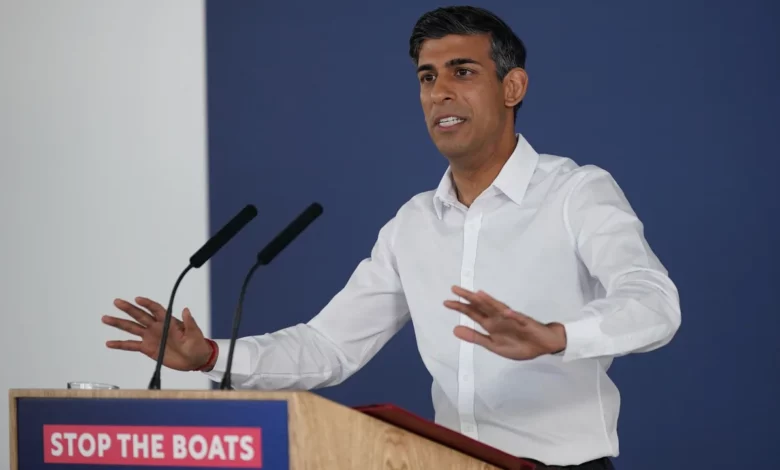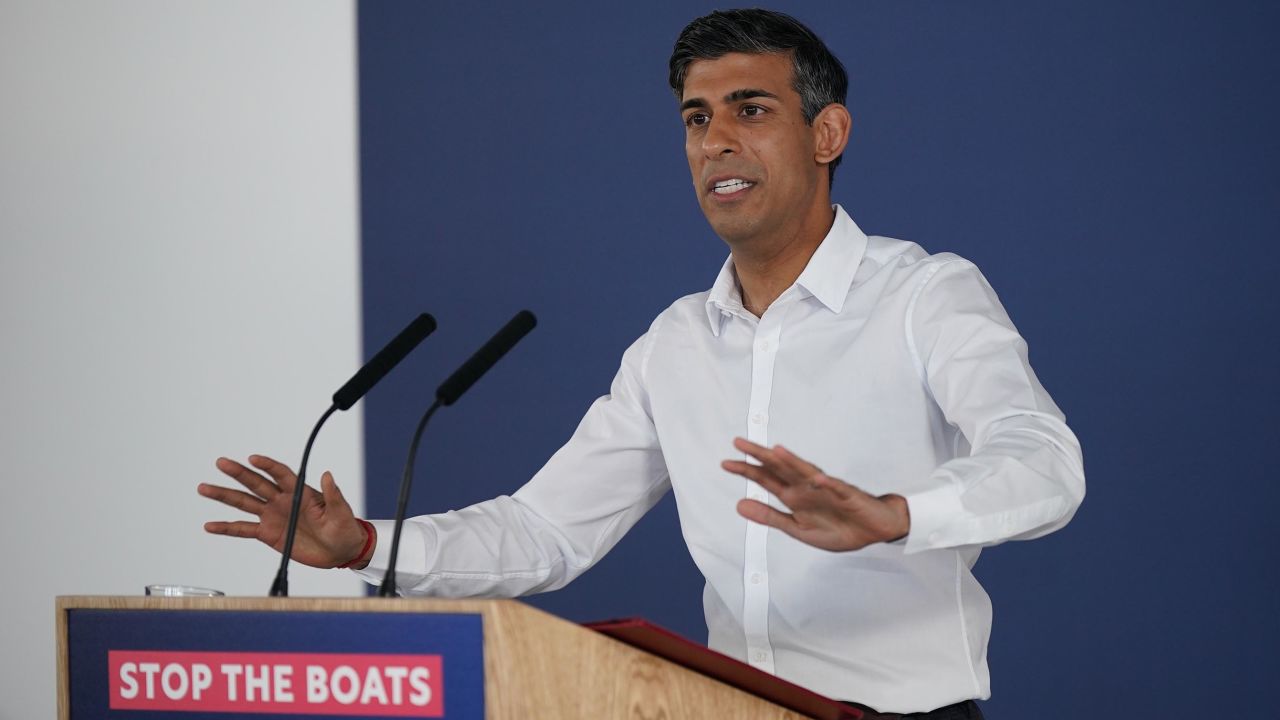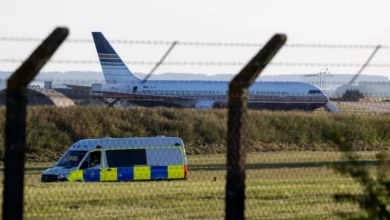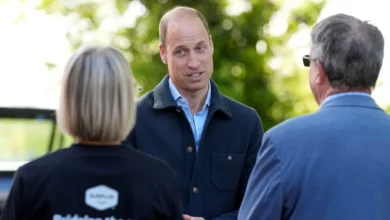
The Conservatives come together for their annual meeting with little good news to celebrate. The party is trailing the opposition Labour Party in the polls by a significant distance.
Sunak has been criticized by moderates in the party for tacking to the right on key issues like immigration and commitments to reducing carbon emissions. He is also being attacked from the party’s right for what they perceive to be an anti-conservative approach to taxation and public debt.
As if Sunak’s job uniting his party this week wasn’t hard enough, the Institute for Fiscal Studies, the leading economic research institute in the UK, published a report projecting that taxes will account for around 37 percent of national income by the next election – the highest level since World War II.
Party conference season is an important date fixture in the annual British political calendar. Taking place in the early fall, these jamborees are the principal forums for each party to outline its priorities for the next 12 months.
For the governing party, conference is typically a time when members rally around the leadership and unite against the opposition, insulated from whatever is happening in the wider world of politics.

This should be especially true as an election approaches. However, Sunak, who wasn’t even the Conservatives’ leader this time last year, has inherited a broken party that has been in power for so long it seems out of ideas and already preparing for the post-mortem and blame game that follows any election loss.
And factions on both the left and right of the party are already publicly criticising Sunak on a range of issues.
Examples coming into this year’s conference:
Former cabinet minister Priti Patel told British channel GB News on Friday that the tax burden was “unsustainable” before unfavourably comparing Sunak to tax-cutting former PM, Margaret Thatcher.
The Conservative-supporting Daily Mail newspaper ran a column titled: “Didn’t the Tories used to be party of tax CUTS?”
Sunak can also expect vocal criticism from the environmental wing of his party after a significant U-turn last week on climate policy. Sunak delayed a planned moratorium on the sale new gasoline and diesel cars from 2030 to 2035 and pushed back on plans to phase out gas boilers in homes.
Some Conservatives who support action on the climate crisis, not least former PM Boris Johnson, criticised Sunak, saying the UK “cannot afford to falter now” or “lose our ambition.”
Such a direct criticism of a sitting PM by a former PM is highly unusual. What makes it particularly painful for Sunak is that Johnson is at the heart of perhaps the most crucial internal battle within the Conservative Party.

Johnson was forced to resign from office because of a range of scandals last summer. However, Johnson’s most loyal acolytes believe that Sunak’s decision to quit as Johnson’s finance minister was the straw that broke the camel’s back and made Johnson’s position untenable. They believe he was motivated by the opportunity to take a run at the top job himself, something Sunak denies.
This battle between Sunak and Johnson has created a very strange dynamic within the party.
Johnson, darling of the Conservative right since the Brexit referendum, is in many ways politically to the left of Sunak. However, his pragmatism over Brexit and cautious economics has led to his allies painting Sunak as a Conservative sellout.
They also believe that Sunak’s betrayal of Johnson and apparent wish-washy centrism is what will ultimately cost the Conservative Party the next general election – ignoring the damage that Johnson did to the party and its standing in the polls through his scandal-ridden premiership.
Sunak has made attempts to counter these attacks by throwing red meat at Conservative MPs and voters. The U-turn on climate policies is just the most recent example. He’s made a crackdown on immigration – particularly the route across the English Channel from France in so-called small boats – a key plank of his agenda since taking office.
He’s been accused of sowing division over over the complex issue of trans rights in attempts to win over his own MPs and has leant into the Johnsonite position of attacking “lefty lawyers” over opposition to his plans, including those on immigration.

His hard-line shift doesn’t necessarily resonate with the public, most polls show. Which is why experts believe that Sunak is doubling down on his Conservative base, which might be his only real path to retaining power at the next election.
“Sunak’s strategy of taking on issues like net zero and small boats is very much a ‘core vote’ strategy, aimed at securing the Conservative base,” says Will Jennings, professor of politics at the University of Southampton.
“This is not without risk – firstly because it’s not clear how large that core vote is without Boris Johnson, Brexit and Jeremy Corbyn (the controversial, hard-left former Labour leader) and also because voters have other concerns right now – most notably the economy,” he adds.
If you talk to senior Conservatives right now, there is a quiet acceptance that a loss is the most likely result of the next election. Most agree that not only does this look like a government in its death throes, but also that everyone is already thinking about who will replace Sunak after his defeat. Factions on the right and left of the party are already forming and people on both sides are already talking about how to win the battle for the soul of their party.
While the next election may not be a foregone conclusion, the next few months will be critical if Sunak is to start turning the polls around and make the comeback of all comebacks. All of that starts this week in Manchester: a good conference could lift the mood and rally the troops; a bad conference could be the kiss of death to any hope his party had left.




